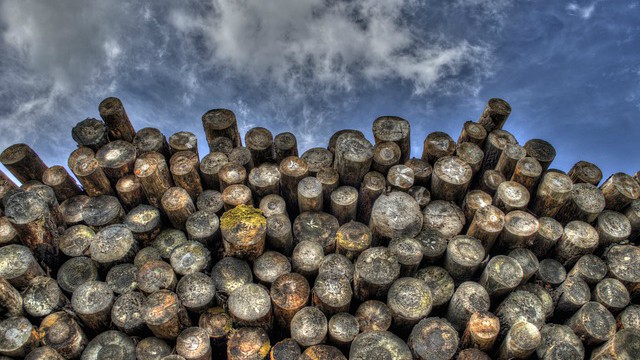Softwood lumber has been in the news since the spring, when the U.S. made a new claim about Canadian softwood lumber producers receiving unfair government subsidies, resulting in punishing tariffs. We discussed this issue a few times over the summer. There have been many decisions about the issue since, with the latest coming on December 7.
Latest decision
It will likely come as no surprise that Canada lost this latest round. In this one, the U.S. International Trade Commission (ITC for short) ruled in a 4-0 decision that Canada’s softwood lumber shipments hurt American producers. (The overall dispute has been ongoing since the last softwood lumber agreement expired on October 12, 2015. The two sides have not been able to come to an agreement since.)
The most recent Commerce Department ruling on November 2 dropped the duties slightly, as many Canadian producers were paying duties over 25%. The new average total for producers is 20.83%.
This is only one of many trade issues Canada has been dealing with regarding the U.S. this year, and it’s been overshadowed by the much bigger NAFTA renegotiations.
Which timber producers are affected?
The case had four mandatory respondents in the issue, including TSX companies West Fraser Timber Co. Ltd. (TSX:WFT) and Canfor Corporation (TSX:CFP). West Fraser’s new combined duties are 23.76%, and Canfor’s are 22.13%. Motley Fool contributor David Jagielski discussed these duties in November and how the stocks might be affected. It’s a good read. The stocks have done well this year with large demand for rebuilding after the devastating hurricane season. But the duties will still hurt each producer’s bottom line.
Where does this leave Canada?
Does this mean Canada is out of options? Hardly. There are multiple places to take this dispute. On November 14, Canada moved it to Chapter 19 of NAFTA in an effort to find a resolution. Chapter 19 has been one of the biggest contentions the U.S. has with NAFTA, and it is trying to change or remove the provision in the hope of getting dispute results that will favour the U.S. in the future. Canada also challenged the tariffs at the World Trade Organization (WTO) on November 28. There are no rulings in either of these cases, so this already drawn-out dispute still has more life in it.
Investor takeaway
If you have invested in or are considering investing in Canadian timber stocks, keep an eye on these dispute decisions as they come out. Demand in the U.S. for lumber is currently high, but that doesn’t mean the tariffs won’t have any effect on these companies. Both West Fraser and Canfor are selling close to their 52-week highs, so the dispute is not making these stocks a bargain right now.









